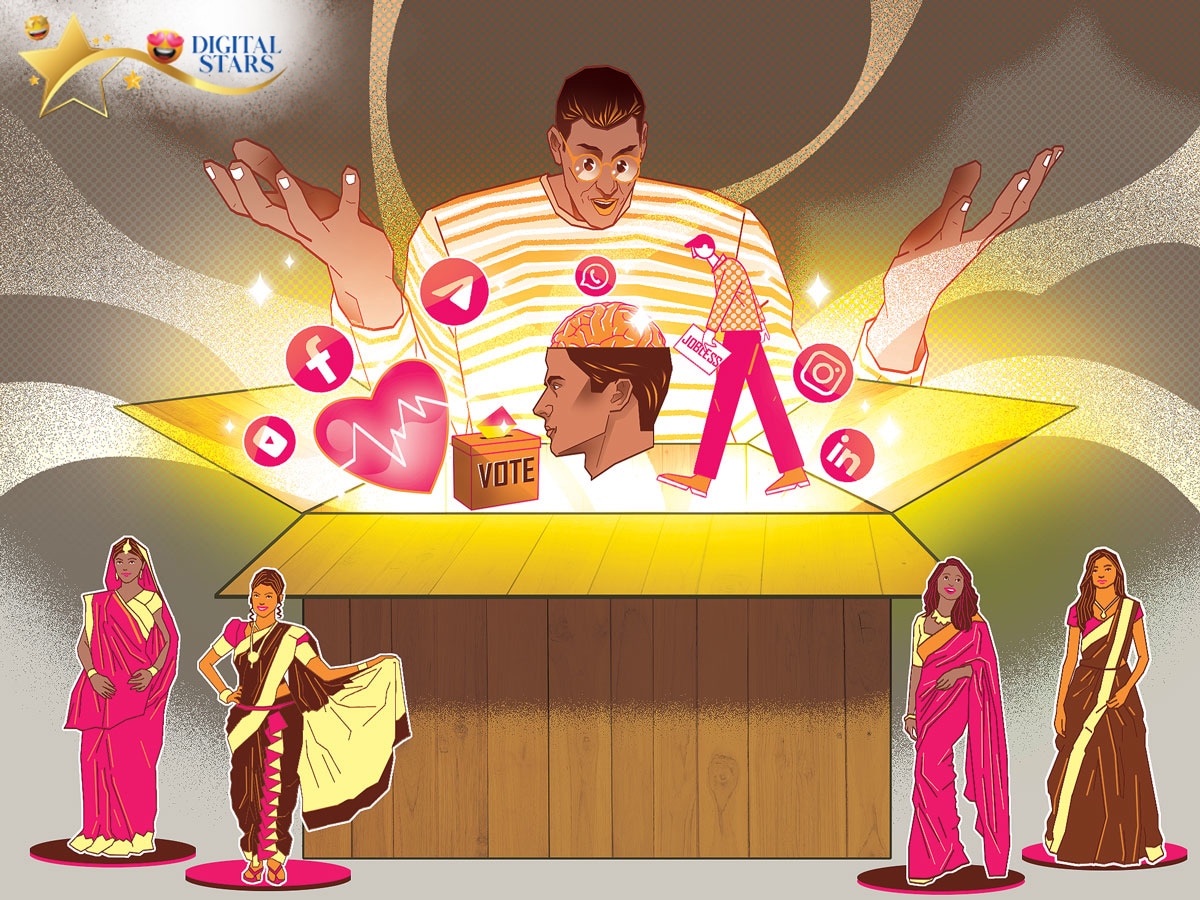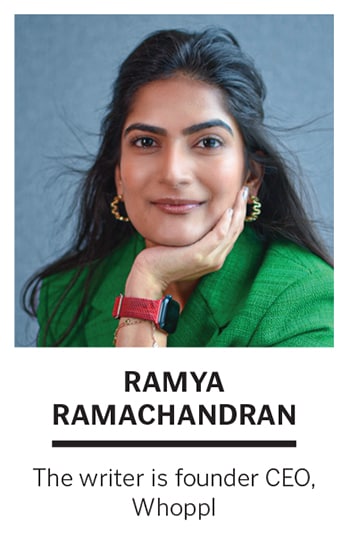Influencers are setting a new agenda beyond communication and making money
Influencers are subtly steering their followers' choices and inclinations to also try and make a positive impact through their work, Ramya Ramachandran, founder CEO, Whoppl writes
 Illustration: Chaitanya Dinesh Surpur
Illustration: Chaitanya Dinesh Surpur
The new breed of cultural architects—social media influencers—harness the burgeoning power of Instagram, Snapchat and YouTube. The 21st-century merchants are influencing millions with one tap, with their ideas, trends and lifestyle. They are moving towards becoming the vanguards of the consumer culture shift, both socially and beyond.
 From fashion and beauty to health, travel and politics, influencers are setting a new agenda, subtly steering their followers’ choices and inclinations.
From fashion and beauty to health, travel and politics, influencers are setting a new agenda, subtly steering their followers’ choices and inclinations.
Thanks to social media, influencers are taking their skills worldwide and putting India back on the world map, one post at a time. Their communication consists of a fine blend that makes it palatable to transcend borders, going places where one must not have imagined in their wildest dreams a few years ago. Is this hinting towards a new form of globalisation, heralded by the new-age merchants?
In this click era, influencers are no longer transactional. Their positive role and impact are felt in arenas such as mental health awareness, where they highlight its importance and offer people a platform to talk and vent their emotions. They also bring attention to the extent of sustainability, feminism and animal welfare, and the likes. But there has also been a significant rise in blind faith, which has its challenges. As they say, with great power comes great responsibility. This power, though a tool for positive impact, bears a significant ethical burden. Surprisingly, many are carrying this burden graciously and responsibly, without losing their foundation.
Aishwarya Subramanyam, popularly known as ‘Otherwarya’, is one of the most vocal influencers, writing or doing what most are afraid to do. And she does so while being incredibly self-aware. She initiated what most would shy away from or wouldn’t ever dare to. A few months ago, she launched a sisterhood cohort across the country, splitting it city-wise, in the form of a WhatsApp group, for women. This cohort didn’t stay restricted to the Indian sandbox, but expanded worldwide with groups forming across Europe and America, women conducting occasional meetups creating small tight-knit communities among themselves, reviving the cherishing bond of sisterhood in these trying times.

















